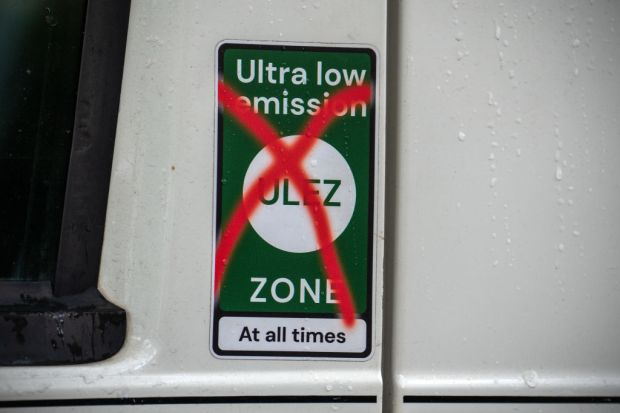If I were boss of Shell I would be tempted to take the company overseas and live a quiet life. Do a Thungela Resources, in other words – the South African-based coal miner spun out of Anglo American in June 2021, dumped by British funds on its first day of trading. But, as coal power stations are fired up around the world in reaction to the energy crisis, it has quietly gone on to become one of the best investments anyone could make over the past year. Its shares have risen tenfold in the 16 months since – while attracting barely a whimper of protest from environmental activists in Britain. Why go out of your way to attract the opprobrium which has been heaped on Shell as a result of its decision to sponsor British Cycling for the next eight years?
According to Friends of the Earth, ‘cycling is the epitome of environmentally-friendly travel. It’s deeply disappointing that British Cycling could think it’s appropriate to partner with a fossil fuel giant’. Greenpeace asserted: ‘the idea of Shell helping British Cycling reach Net Zero is as absurd as beef farmers advising lettuce farmers how to go vegan.’
Except, of course, British Cycling doesn’t claim that its activities are environmentally-friendly. Take your bike rather than your car to work might be good for the environment, but cycle racing is rather different matter. As with any other international event it requires large numbers of people to fly around the world to take part, as well as helicopters to film races.
Moreover, where does Greenpeace think polymers from which carbon fibre racing cycles are made originate? Like virtually any other activity engaged in by humans, cycle racing runs on fossil fuels – the mainstay of Shell’s business. There is no division, then, between sponsor and the organisation being sponsored. It isn’t the case that one is pure and the other an environmental vandal. They are both part of an economy which for the past 200 years has run on the cheap energy supplied by fossil fuels. If you want to take away that source of energy – as Just Stop Oil clearly wants to do – it would mean the instant end of cycle racing.
There is nothing perverse about British Cycling taking up the offer of sponsorship from Shell. These are two organisations which are both trying to reduce their carbon footprint, and which can maybe learn from each other – as well as allowing cycling to grow as a sport. Was there, say, a mung bean-grower which was keen to sponsor our national cycling team instead and which British Cycling dumped in order to team up with Shell? I guess not. But that won’t stop climate activists trying to reject anything to do with the oil industry, close it down, shame it and all their usual tricks.
Got something to add? Join the discussion and comment below.
Get 10 issues for just $10
Subscribe to The Spectator Australia today for the next 10 magazine issues, plus full online access, for just $10.





















Comments
Don't miss out
Join the conversation with other Spectator Australia readers. Subscribe to leave a comment.
SUBSCRIBEAlready a subscriber? Log in